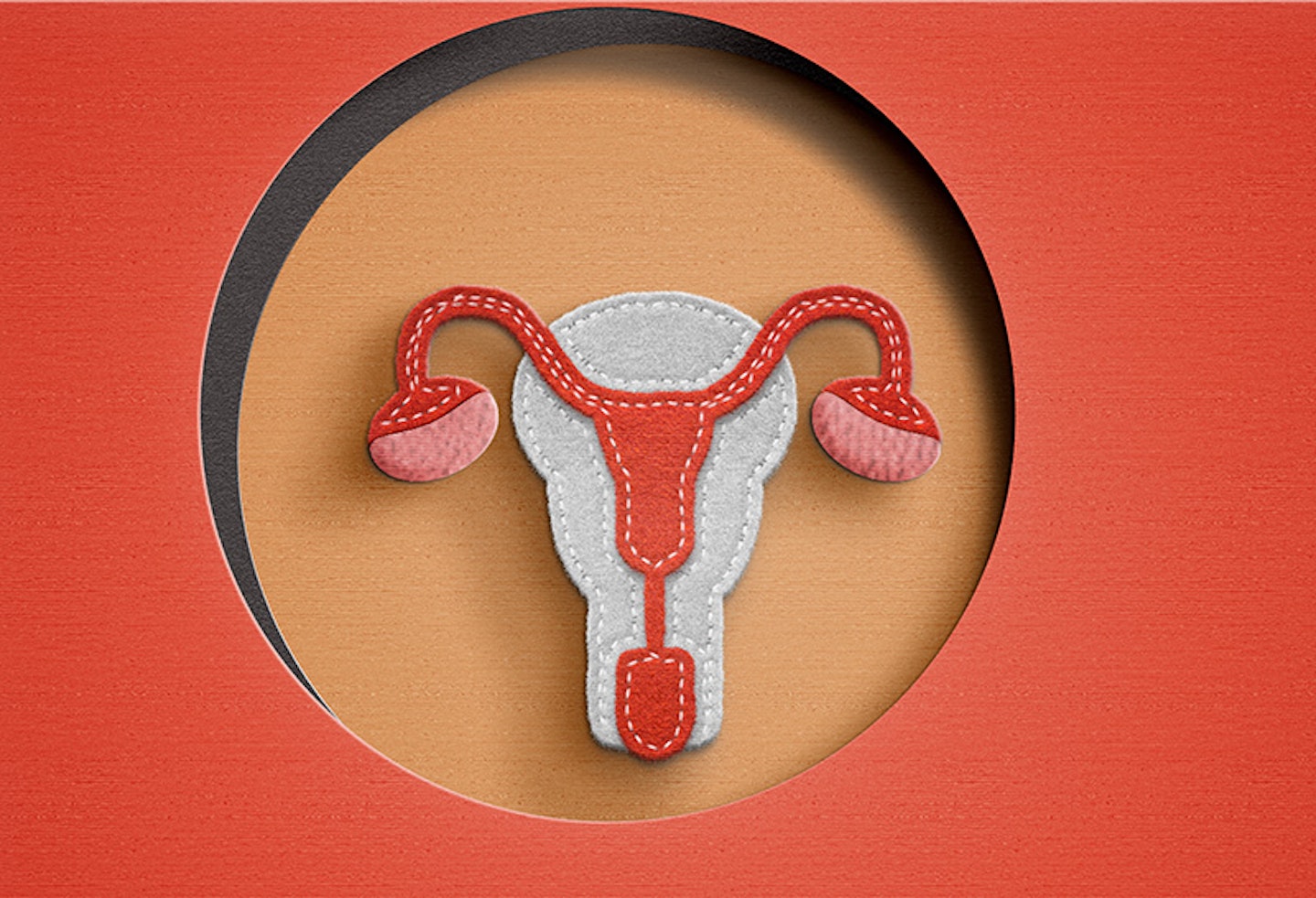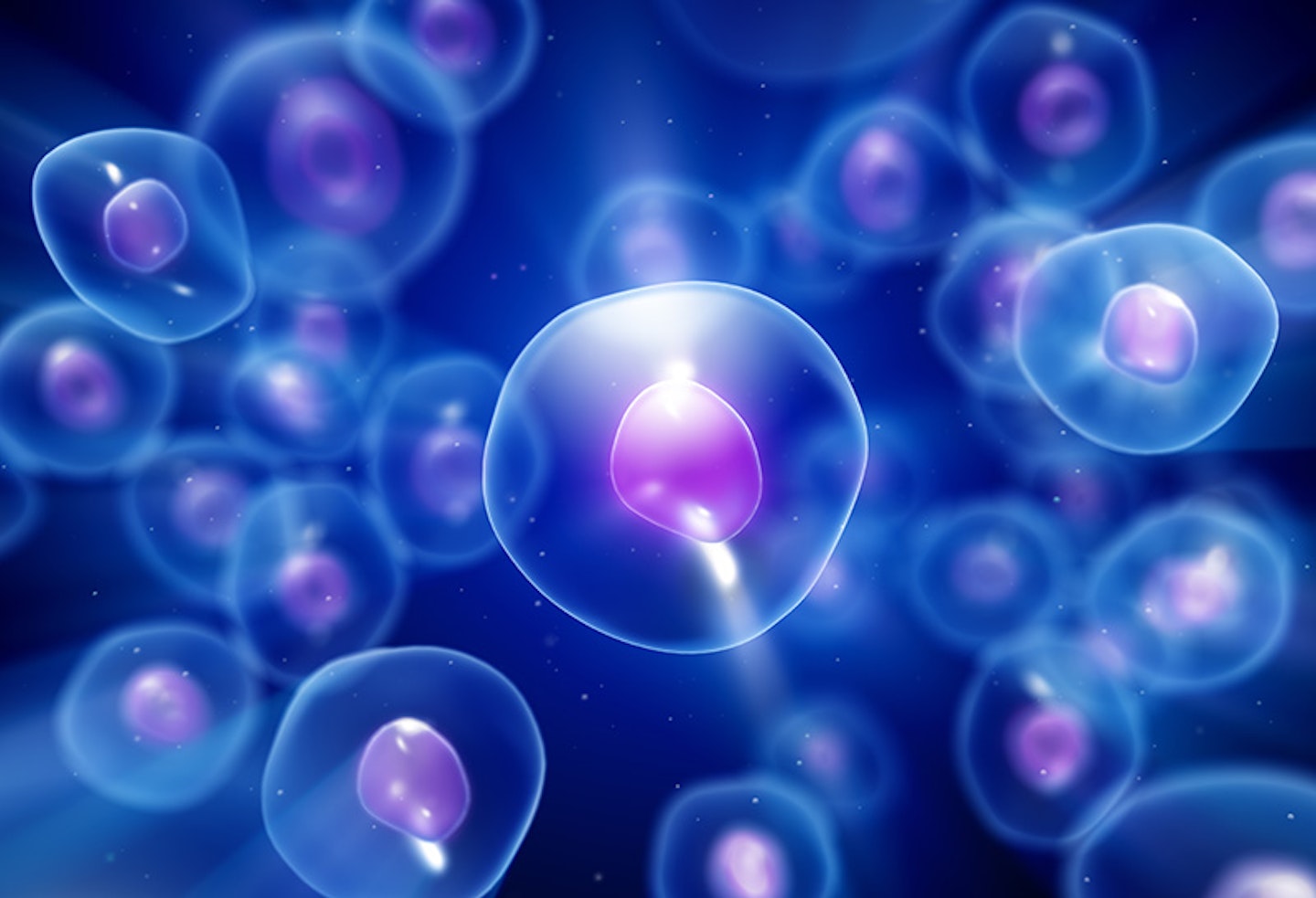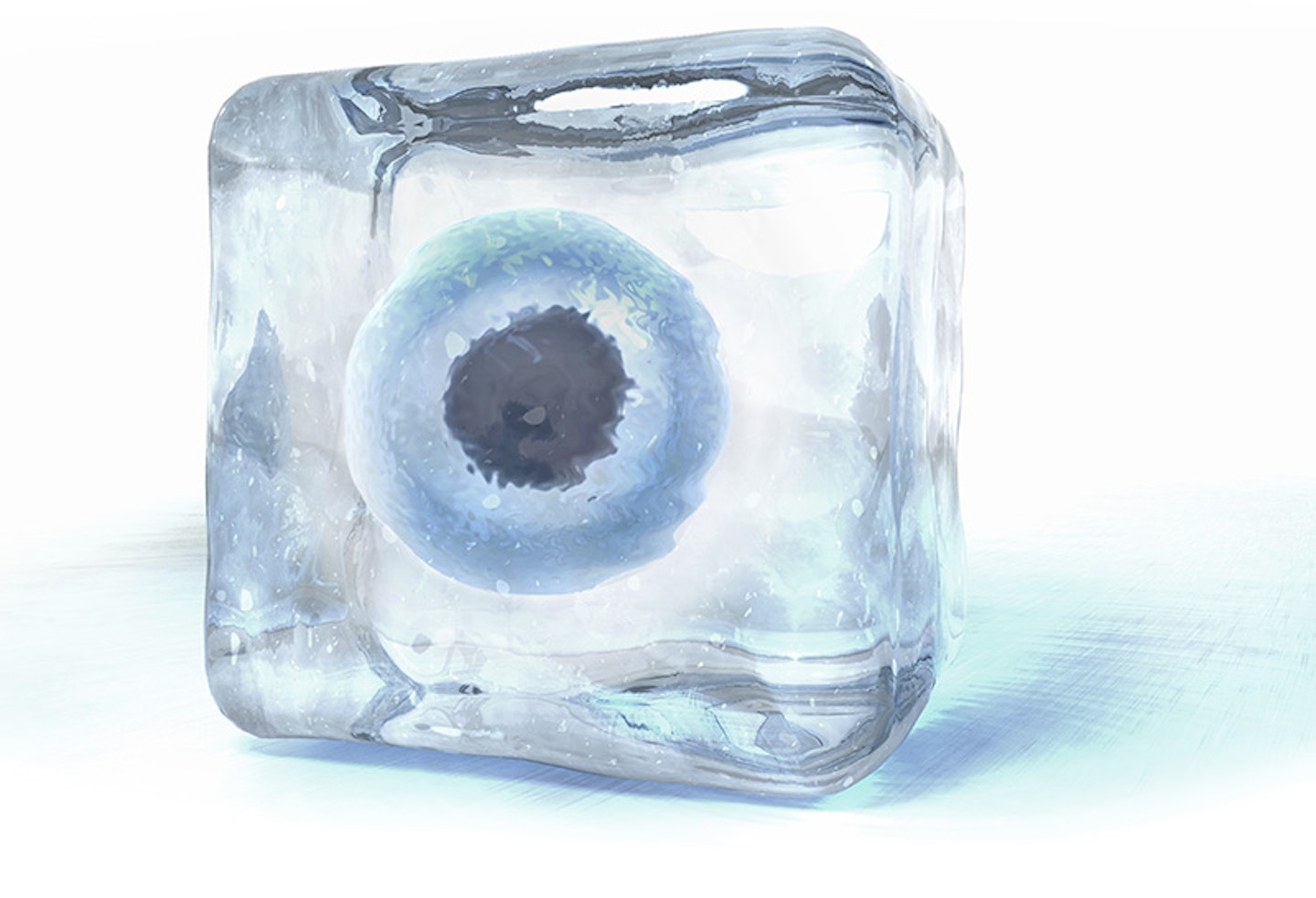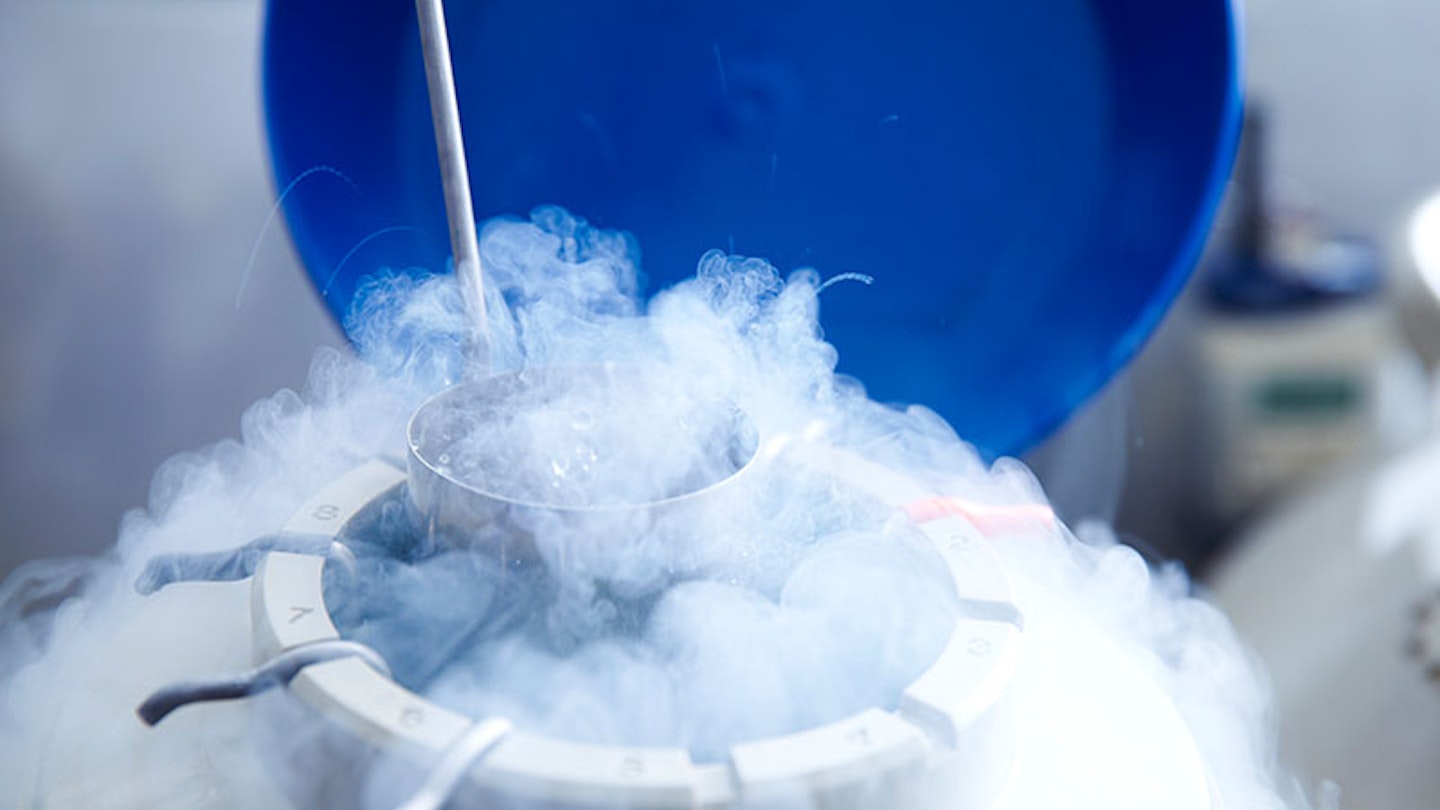Originally, freezing eggs in the UK was a procedure designed in the 1980s to support the fertility of women who had to have a health treatment for a serious medical condition, where the treatment might compromise them having babies later on. It has now evolved as a means of women extending their fertility window, with women opting to have their eggs removed and stored for future use.
The number of people choosing to freeze their eggs or embryos has increased five-fold in the UK since 2013, according to latest figures from the Human Fertilisation and Embryology Authority which show that the number of egg and embryo storage cycles rose by 523 per cent between 2013 and 2018 (yes, you read that right!)
However, freezing eggs in the UK as a topic is often miscommunicated, and women can be given unrealistic expectations about their chances of success. Considering that demand for egg freezing is on the rise, it’s time to have a frank conversation about IVF and fertility and debunk the most common myths.
We caught up with Dr Mara Kotrotsou, Chief Medical Officer at Apricity, a UK-based virtual fertility clinic, to find out more about egg freezing, the process behind it, why you may choose to freeze your eggs and what actually happens once you've made the decision.
What is the best age to freeze your eggs?
As we get older and become more aware of the fact that our fertility reduces with each passing year, women might be more likely to start thinkin of egg freezing as an option - but if you wait too long you might be missing your window, according to the experts!
The London Egg Bank says; "A woman’s most fertile years are between the ages of 18 and 29. After 30, fertility starts to decline, with a sharper drop at around 35 - and by the early 40s both the number and the quality of eggs decrease."
They also share that the decline of fertility is dependent on genetic and lifestyle factors, like:
• your weight
• whether you exercise
• how you respond to stress
• your environment
• whether you take medications
They do say that "Generally you can be sure that egg quality and quantity will decline with advancing age", and that, "The question of the best age to freeze eggs is also affected by local legislation and expectations about when they are likely to be used for pregnancy."
When it comes to the best age to freeze your eggs, we asked Dr Mara Kotrotsou, who says:
"As with everything with fertility, and the chances of conceiving, you know that there's an age limitation in order to have the highest chance of success. The same applies to egg freezing. In an ideal scenario, to make the treatment of egg freezing have a higher chance of being effective, women should be freezing their eggs during their optimal reproductive age, ie. younger than 35."
The London Egg bank clarifies this: "Freezing eggs before the age of 30 will probably provide the highest number of healthy eggs, with a slightly smaller number if between the ages of 30 and 35 and a much smaller number over age 35."
What is the catch 22 of 'social egg freezing'?
Dr Mara Kotrotsou touches on the fact that younger women want to freeze their eggs in an attempt to preserve their fertility because they don't want to have children now, rather than in order to protect their fertility from risky health treatments, which would have been the case when egg freezing was first introduced in the UK.
Dr Mara Kotrotsou describes 'social egg freezing' as; "Doing it to preserve fertility or the possibility of preserving fertility, rather than for women who may be oncology patients or who may be undergoing treatment which could render them prematurely infertile."
But she points out that social egg freezing also has another implication - cost!
"In most cases, women will be self-funding", she says, "So there is also the question of, will it be cost effective? And then this is where there's a slight conflict of interest."
So, what does this imply?
"If a woman is quite young, let's say early 30s, she has the best chances of freezing her eggs in terms of outcome," says Dr Mara Kotrotsou, "but she could be falling pregnant sometime within the next five years, completing her family the way she always planned, and ending up not using the eggs. Therefore, it's not so cost effective."
Dr Mara Kotrotsou says, "If you want to maximise the cost effectiveness, then you're better off leaving it to later, when you start seeing that the chances of you falling pregnant naturally or with a partner are decreasing. But then the catch is that the longer that we leave it, it becomes less successful."
Is egg freezing a good 'insurance policy'?
Dr Mara Kotrotsou expresses that there are no guarantees, saying; "When I see women, they want to explore their options, and what I want them to understand is that the egg freezing should be their plan B. It shouldn't be plan A, because it doesn't guarantee that you're going to fall pregnant - the same way that you don't know whether you're going to fall pregnant when you go through an IVF cycle, there’s no 100 per cent guarantee. It still has some limitations. It has a higher chance to work when you're doing it earlier rather than later."
But with somewhere between 5 and 10% of women experiencing early menopause, according to The Centre for Logitudinal Studies, and the fact that, as Womenshealth.gov says, "Smoking and certain medicines or treatments can cause menopause to come earlier than usual", it's no wonder that younger women are turning egg freezing as an insurance policy.
Love Island's Amy Hart, 28, revealed in an emotional post on Instagram that she'd had her eggs frozen, after she was warned she was heading towards an 'early menopause' following a fertility MOT the previous year. Amy shared that she was relieved about the successful results after two previous failed rounds.
"After a "lot of uncertainty", Amy said, "It's not hanging over me anymore. I just think that's done now, they're in the freezer."
Amy has five eggs in the freezer for 10 years and a potential further four, likening the process to a "little insurance policy", and saying, "I would have loved to have frozen earlier, unfortunately the legislation at the moment is they can only be frozen for 10 years. So you’ve got to get it right in that you get the better quality eggs to freeze, but then you don’t sell yourself short for how long you can use them for."
When is it too late to freeze eggs?
There's no age limit for freezing eggs, so if you're still producing them, they can be put on ice, so to speak. Dr Mara Kotrotsou expresses that this doesn't necessarily mean your eggs will be usable:
"We do see a lot of women who come to clinics and want to explore egg freezing when they're 39, 40, or over 40 - and then it's not the number one recommended choice. This is because we know that they will be freezing eggs that aren’t as good quality, and by the time we go back to test them, it may be too late for them to try something else."
Dr Mara Kotrotsou also points out that for women over 40, the amount of eggs they can produce may be limited: "There's a magic number of 20 to 30 frozen eggs which they may not be able to reach, even with multiple treatments", she says, "So for women older than 40, sometimes we say let's try and get pregnant now, rather than postpone, as they'll have more chance of a successful pregnancy."

How does egg freezing actually work?
If you're thinking of freezing your eggs, you may be concerned about the procedure and treatment, and Dr Mara Kotrotsou says it's pretty much the same as when you undergo fertility with IVF:
"At the start of the treatment cycle there will need to be some basic investigations to assess the ovarian reserve, or in other words, the ability of the woman to produce eggs in terms of numbers, so that we can tailor the treatment in terms of dosages of medication."
So, what do these investigations involve?
"We will need to do a pelvic assessment with scans," says Dr Mara Kotrotsou, "There are screening tests that are required in terms of making sure that the woman doesn't have any sexually transmitted diseases or viral infections, which have to do with how the eggs will be stored in the lab. So we have to comply with everything that we do for IVF."
And what about drugs?
"The treatment process itself involves the drugs that we use in IVF, which are essentially hormones in the form of injections, synthetic hormones similar to the hormones that our brain produces to tell our ovaries each month to produce eggs - only now they are in higher amounts, because we want to get more eggs than what we would have had in a natural cycle."
Dr Mara Kotrotsou shares that the treatments consist of an average of around two weeks of the hormonal injections, alongside visiting the clinic, or having the monitoring internal scans, which check how the ovaries are responding. She says the checks are sometimes combined with blood tests.
That doesn't sound too bad, but how about actually removing the eggs?
"At the end of this two week period, we have a procedure called an egg retrieval, which is done trans vaginally, so it doesn't involve any cuts, it's just a fine needle that is inserted through the vaginal port. It's usually done under a mild anesthetic, intravenous sedation rather than a general anesthetic," says Dr Mara Kotrotsou. "Once the eggs are retrieved, they’re passed on to the embryology lab to be processed, prepared and frozen."
What is the recovery time following the procedure?
"Following the procedure the typical recovery period is a few days, some women go back to work the following day, depending on how physical their profession is. It’s normal to have a bleed within a week or so from the procedure and then resume their normal cycle."
How to decide if egg freezing is right for you
Will the NHS freeze my eggs?
Egg freezing is not normally available on the NHS unless you are having medical treatment which could affect your fertility (for example, treatment for cancer). You need to contact your Clinical Commissioning Group (CCG) directly and ask if it funds egg freezing.

Egg freezing FAQs - Answered by an expert
Who do I need to go to if I’d like to discuss freezing my eggs?
"I think it's best to have a discussion with a fertility specialist, as GPs may not be so well informed because social egg freezing is not something that's funded by the NHS, therefore they won't be able to assist you."
How much does it cost to freeze eggs?
"On average it costs around £3,000 to £5,000 pounds. There’s obviously variation from clinic to clinic, it’s similar on average to the cost of IVF. The only difference is that usually clinics do packages where they include an initial storage period – so you might get that either one, two or three years of free storage with an initial price, and thereafter you pay an annual storage fee. Some places may also do packages including multiple cycles."
How many eggs are stored?
"The reason that some clinics offer multiple cycles included in the fee is that the outcome of the treatment and how effective it is depends on the number of eggs collected. We recommend that you have 20 to 30 eggs frozen. To collect this number you’ll usually have to go through the process more than once."
How long will the eggs be usable for?
"Based on current evidence in terms of the technology behind it and the effect on the eggs, potentially forever. But we have legal limitations, which means there is a maximum of 10 years for storage. This is where it gets tricky, when women are freezing their eggs at a younger age - so let’s say someone decides to freeze their eggs at 25, then the 10 years will expire when they’re 35. But potentially, they may want to keep them until they are 45.
However, the Government have recently announced plans to increase the frozen eggs and sperm storage limit, to 55 years giving people much more flexibility and time to make their decision on starting a family. These plans still need parliamentary approval, but it's definitely a postitive step for those wanting a greater choice on when to have children.
"There's exceptions, of course, in cases where freezing is done because of medical reasons. They have an exemption, they can freeze their eggs for up to 55 years, but the social freezers have to comply with the 10 years.
"However, because we've seen trends of more women wanting to freeze eggs socially, there is a possibility this will be reviewed in the future to increase the limit."
What’s the success rate when freezing eggs?
"Egg freezing as a procedure has not been done for as long as embryo freezing, and we are limited in that many of the women who have decided to freeze their eggs have not come back to use them yet. We won't know until we start thawing eggs the success of the process for each individual. But, based on what we know so far, the studies show that we're achieving a survival rate of anywhere between 70 to 80 per cent as an average survival rate of the eggs themselves.
"This is where eggs, compared to embryos are less successful, because embryos are more resilient. With an embryo you’re looking at survival rates of 90 to 95 per cent. The reason for this is that we have more experience and knowledge of storing embryos, but also because of the physiology of the egg. It's a single cell, it's very sensitive. If it dies, it dies. On the other hand an embryo, frozen at the blastocyst stage, will have about 100 to 200 cells. So if we lose a few cells during the process, the other cells could regenerate and the embryo as a whole can survive. That's why we're still seeing more losses in comparison.
"Once the eggs survive and are fertilized, the results suggest we're looking at similar success rates thereafter. But the limitation is the first stage and that's why we recommend freezing more eggs for fertility preservation."
Is the process of freezing eggs safe?
"The process itself has the same risk as if we were going with going through fertility treatment with IVF. Overall, it is safe but there are always risks. One of the things to consider is what we call ovarian hyperstimulation, which exists in all fertility treatments. This is relatively rare and does have ways of being managed, it's also more likely to happen at the actual implantation stage, rather than when retrieving the eggs.
"Then of course there are risks from the surgical procedure itself, though it's not major surgery, it's still surgery, it's still invasive and has a small risk of infection, bleeding, or injury to surrounding organs, but overall, a relatively safe process."
Are eggs stored for a longer time less likely to work?
"This is still being researched but the initial suggestion is no. We don't we don't have any clear evidence that the length of the storage could have an impact on the outcome. It's more like an all or nothing effect, provided they're stored properly. There are specific conditions that an embryology lab needs to operate under, where they have controls for the air that circulates, freezing conditions and storage tanks with fast freezing liquid nitrogen."
What rights do I have over my frozen eggs?
"That's the good thing about freezing eggs. Because obviously, sometimes when we counsel women who want to look at their options - whether they're freezing embryos with partners, vs freezing their own eggs - in terms of the eggs, she has 100% rights over them, they're hers.
"She can decide when she uses them, if she uses them, if she wishes to discard them. Also what sperm she wants to use, whether it's a partner, a future partner or husband's sperm, or donor sperm in the future. When we freeze embryos, both parties have equal rights, so they cannot make a decision which is not a joint decision."
What happens if I move overseas - can I take my frozen eggs with me?
"We do ship embryos, and gametes, which is sperm or eggs, overseas. Of course, there are specialised couriers, it's not something that you do with Royal Mail!
"They'll also need to make sure that it can be done from a regulatory point of view, that the eggs can be exported to the country. Whatever fertility treatment someone undergoes in the UK, complies with HMCA regulations. So before they export to another country, they'll need to make sure that that country has similar parameters, similar standards, and that the eggs will be used for a treatment that is legally allowed in the UK.
"If export is not possible, they can always consider the possibility of managing their cycle remotely. Sometimes there are collaborations between clinics, where a woman can go to a clinic in the country where they're living and start her treatment in collaboration with the center where the eggs are frozen. She could be prepared in that country and then travel to where the eggs are frozen for the actual transfer."
Can I grant permission for someone else to use my frozen eggs, and what happens if I decide not to use them?
You will have to decide to donate your eggs, which is not so easy, because when donating gametes or embryos, there are more requirements in terms of screening that need to have taken place at the time of the donation. So sometimes when we decide to do that in retrospect, we may not be able to satisfy all the requirements.
"Alternatively, if they feel that they don't need them anymore, the eggs can also be donated to a clinic for training or research."

About the experts
Dr. Mara Kotrotsou is a Consultant in Gynaecology and Reproductive Health with over 10 years of experience in both state and private healthcare environments. She is also the Chief Medical Officer at Apricity, an innovative fertility support service.
Proud aunt to her teen niece, Zara Mohammed is a Digital Writer for Mother&Baby. She has 10 years freelance writing experience creating lifestyle content for various platforms, including pregnancy, women’s health, parenting, child development and child mental health, plus lots of fun seasonal family articles and celebrity news.
